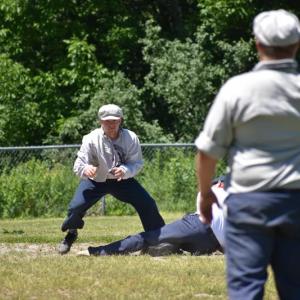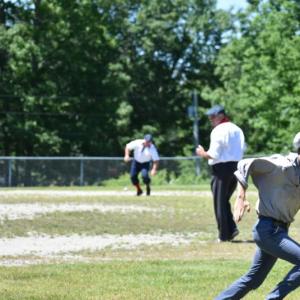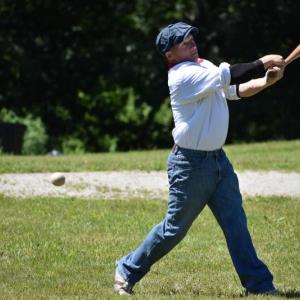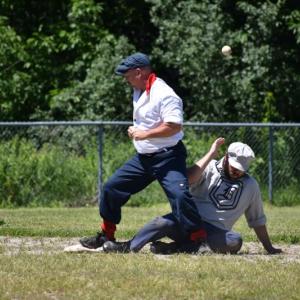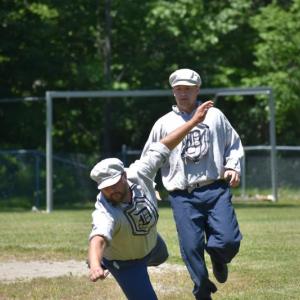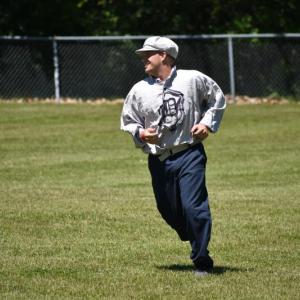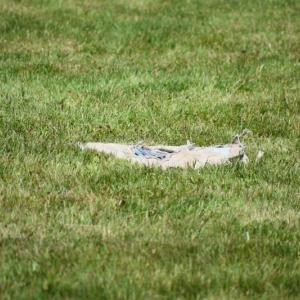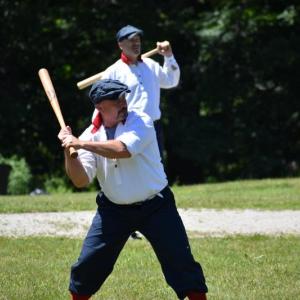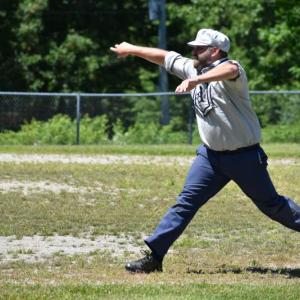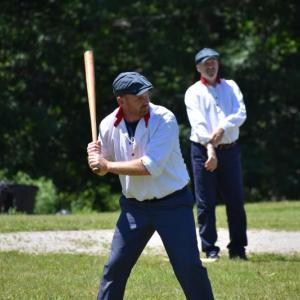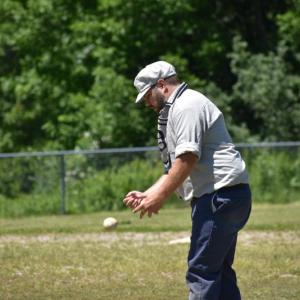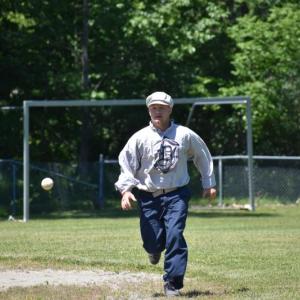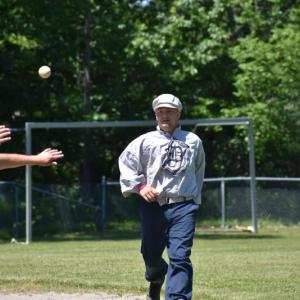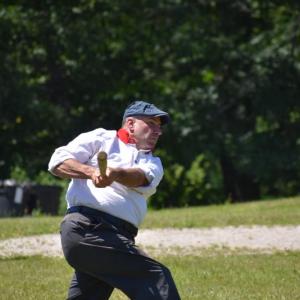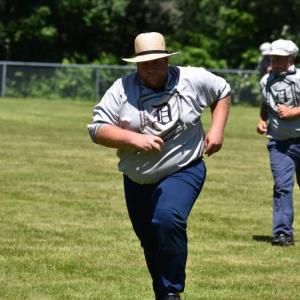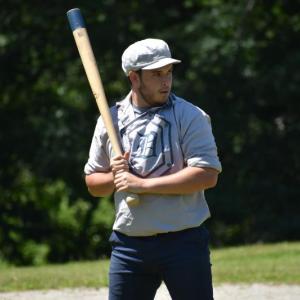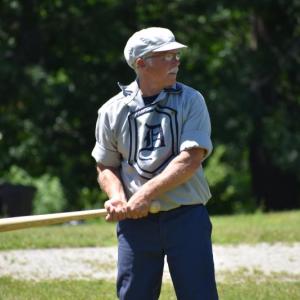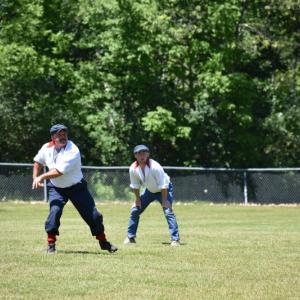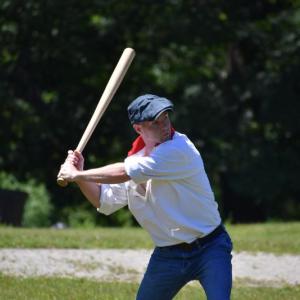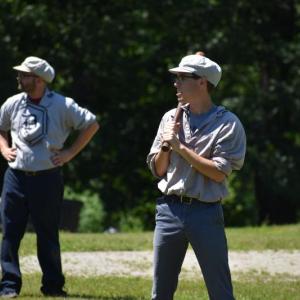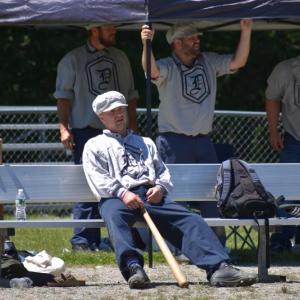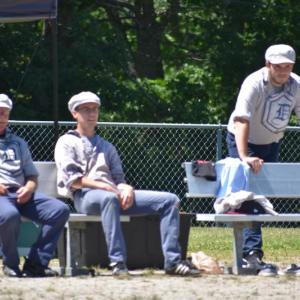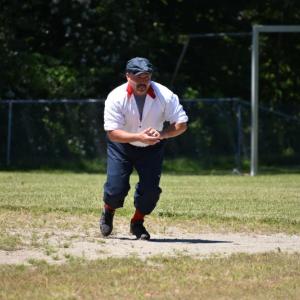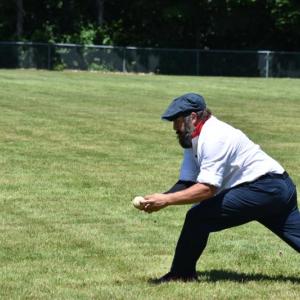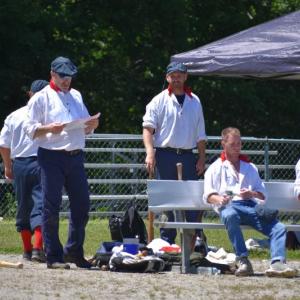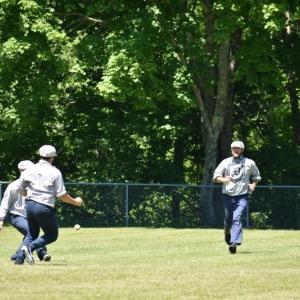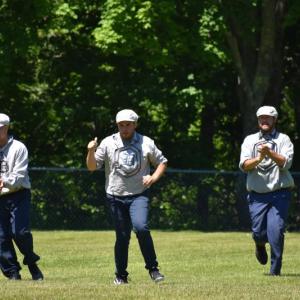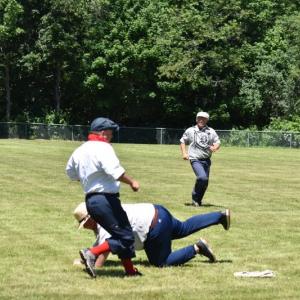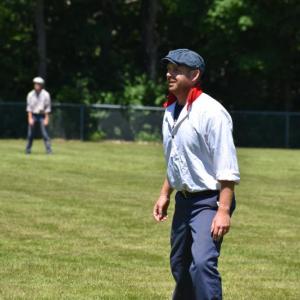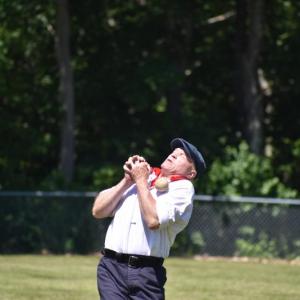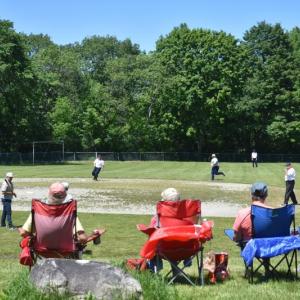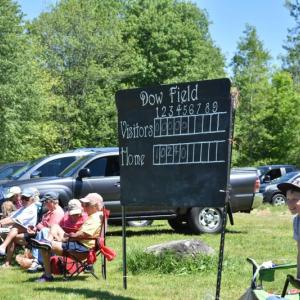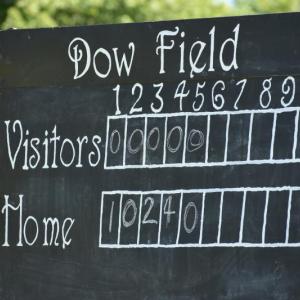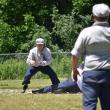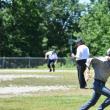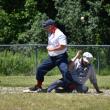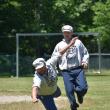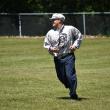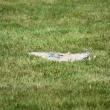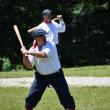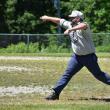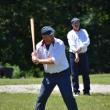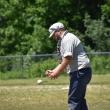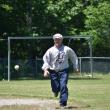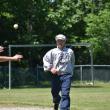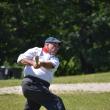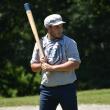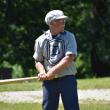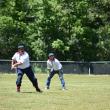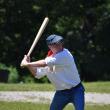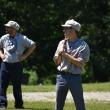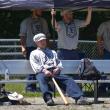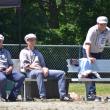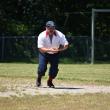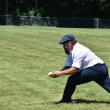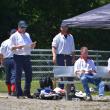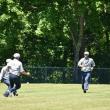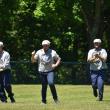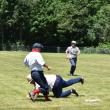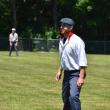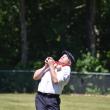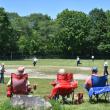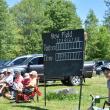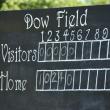Caught on a bounce, you’re out: Vintage base ball takes the field in Waldoboro
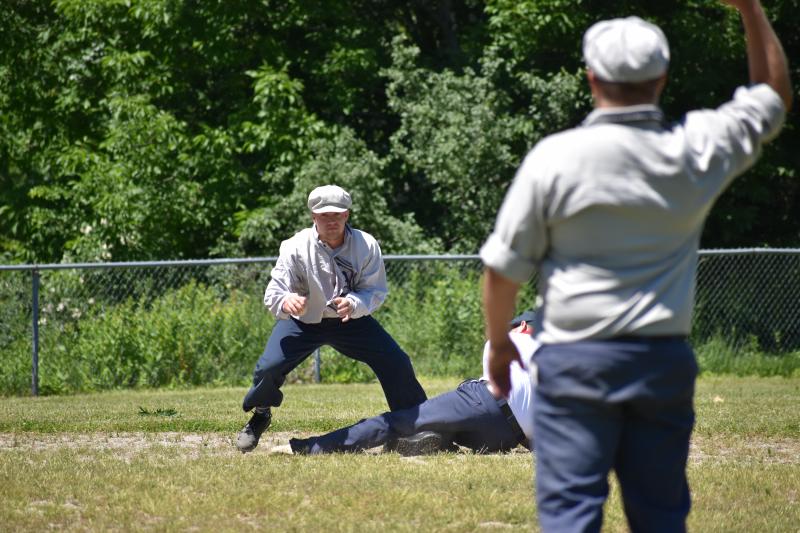 Undeterred by regulation uniform apparel from 1864, members of the Dirigo Vintage Club kept the ball moving as a Sunrise Base Ball Club player slides in. (Photo by Sarah Thompson)
Undeterred by regulation uniform apparel from 1864, members of the Dirigo Vintage Club kept the ball moving as a Sunrise Base Ball Club player slides in. (Photo by Sarah Thompson)
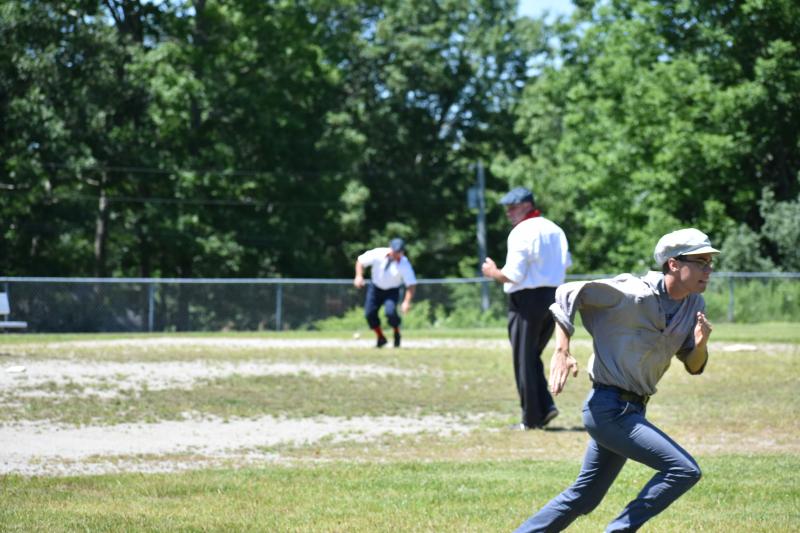 (Photo by Sarah Thompson)
(Photo by Sarah Thompson)
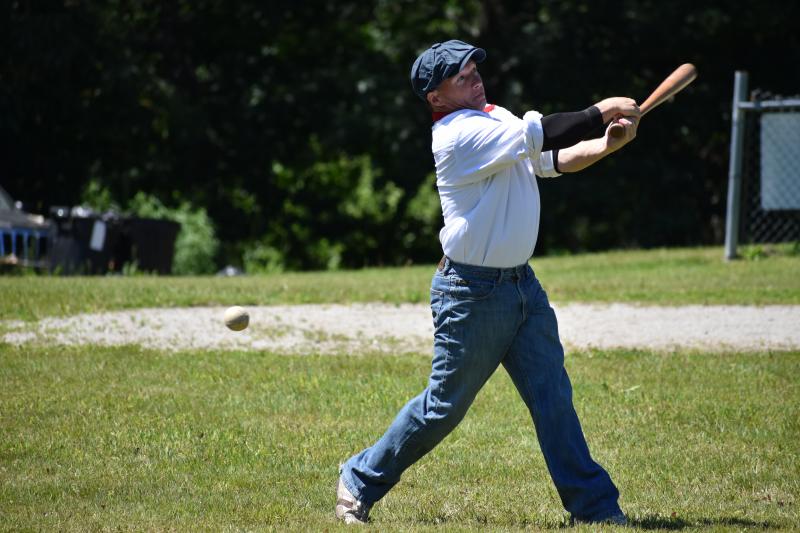 (Photo by Sarah Thompson)
(Photo by Sarah Thompson)
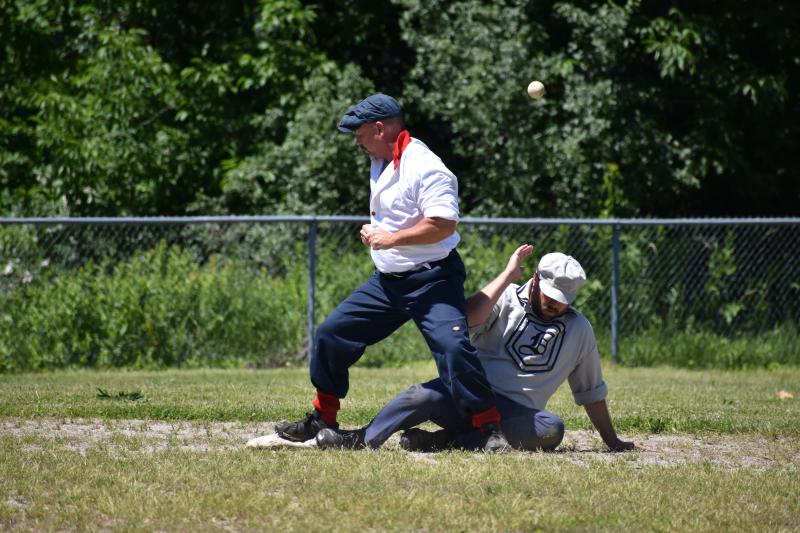 (Photo by Sarah Thompson)
(Photo by Sarah Thompson)
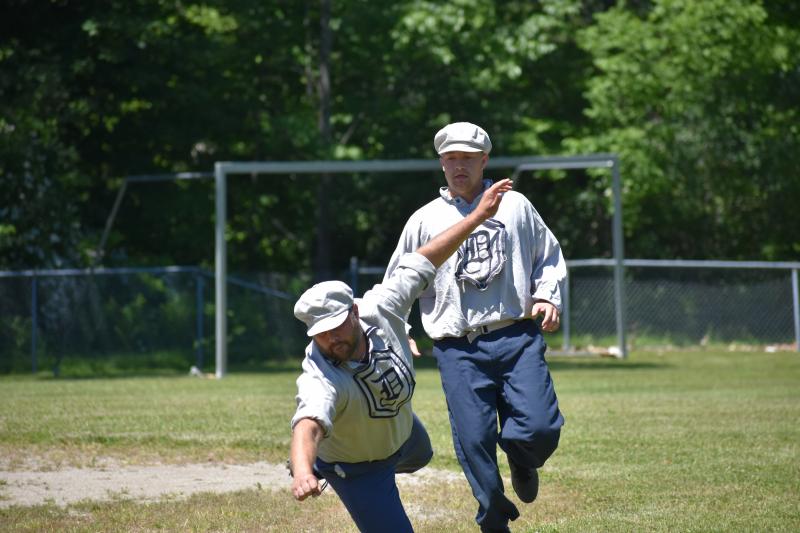 (Photo by Sarah Thompson)
(Photo by Sarah Thompson)
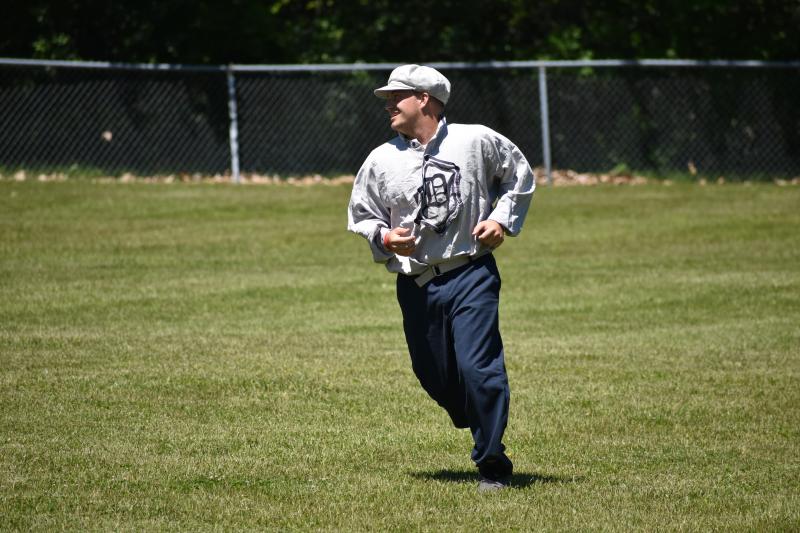 (Photo by Sarah Thompson)
(Photo by Sarah Thompson)
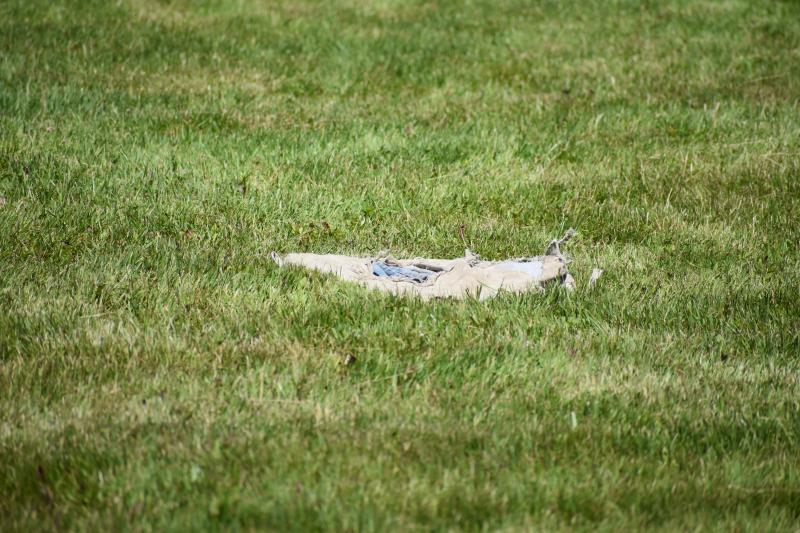 First base. (Photo by Sarah Thompson)
First base. (Photo by Sarah Thompson)
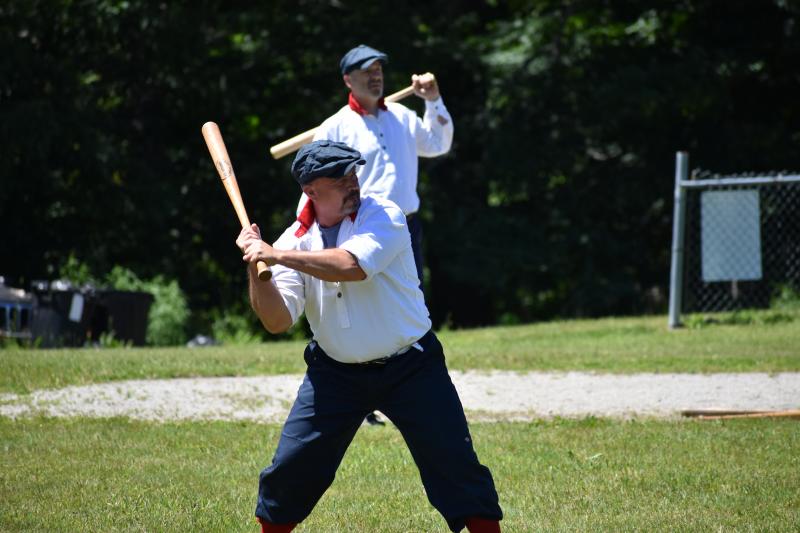 (Photo by Sarah Thompson)
(Photo by Sarah Thompson)
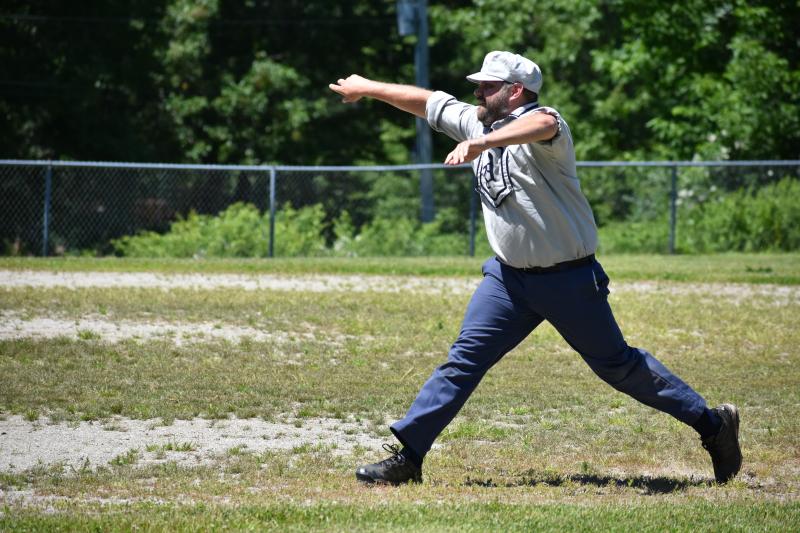 (Photo by Sarah Thompson)
(Photo by Sarah Thompson)
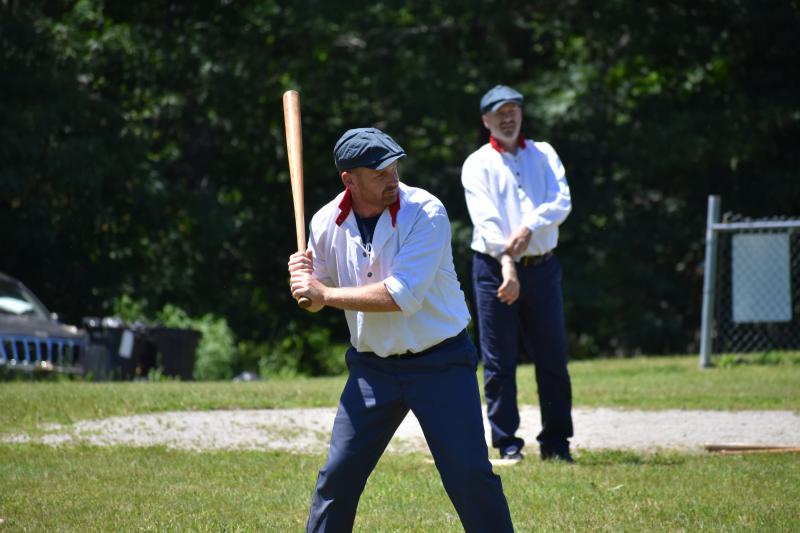 (Photo by Sarah Thompson)
(Photo by Sarah Thompson)
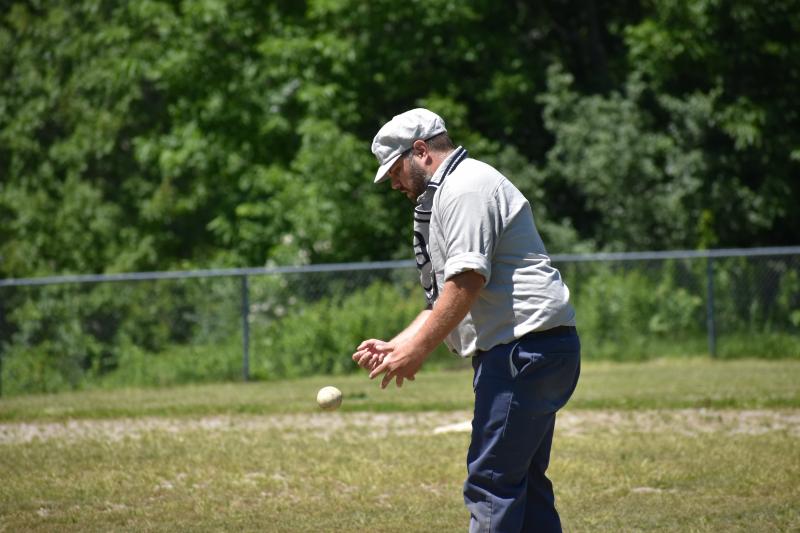 (Photo by Sarah Thompson)
(Photo by Sarah Thompson)
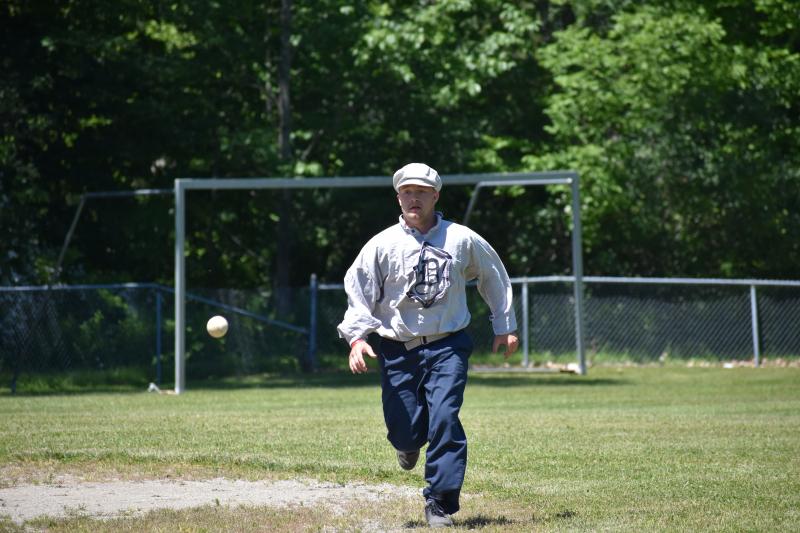 (Photo by Sarah Thompson)
(Photo by Sarah Thompson)
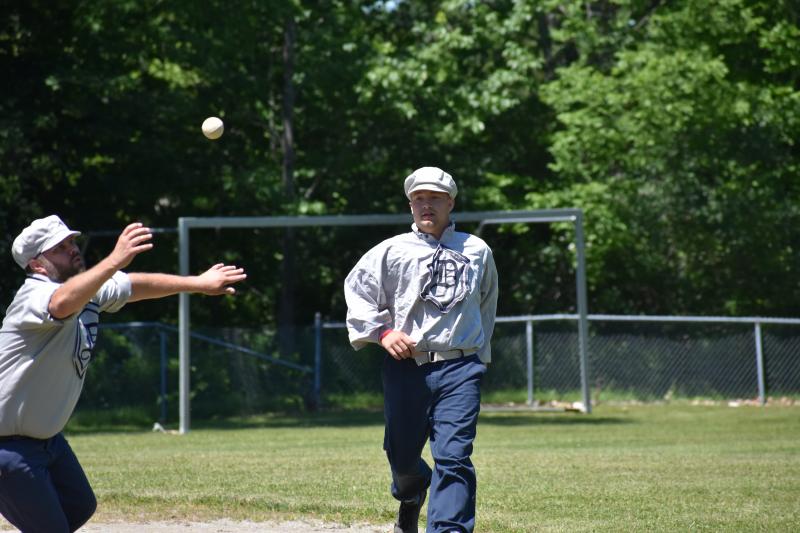 (Photo by Sarah Thompson)
(Photo by Sarah Thompson)
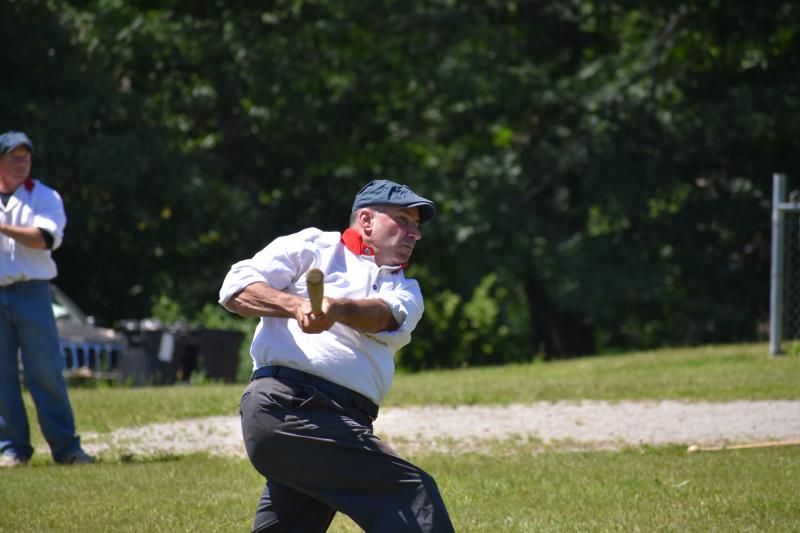 (Photo by Sarah Thompson)
(Photo by Sarah Thompson)
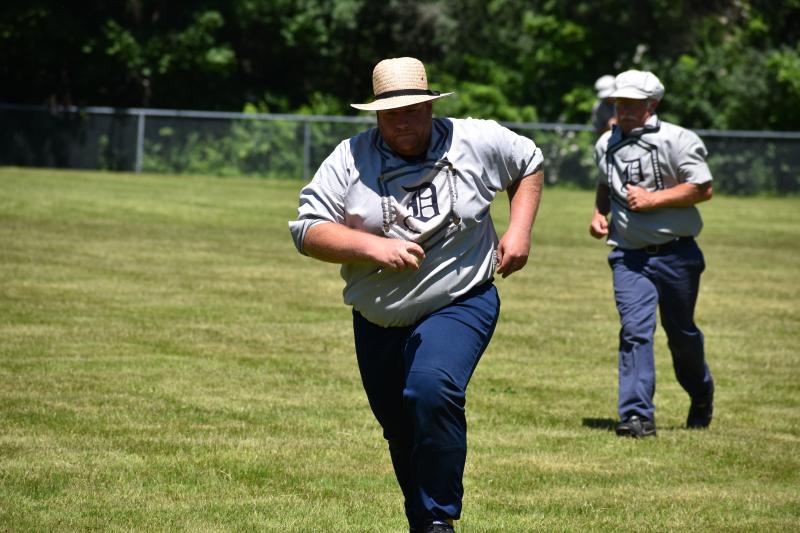 (Photo by Sarah Thompson)
(Photo by Sarah Thompson)
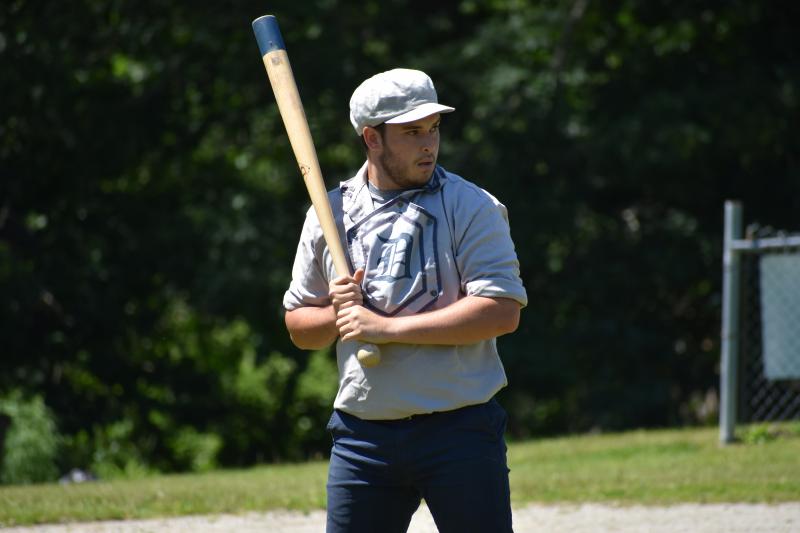 (Photo by Sarah Thompson)
(Photo by Sarah Thompson)
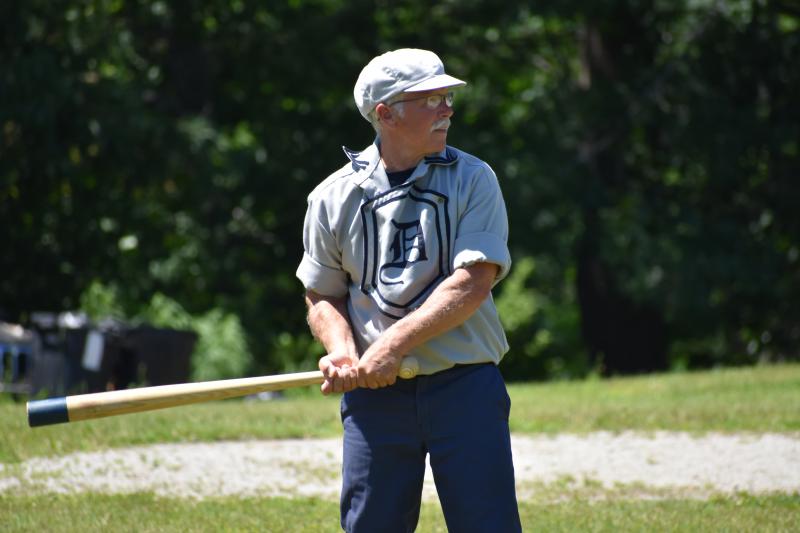 (Photo by Sarah Thompson)
(Photo by Sarah Thompson)
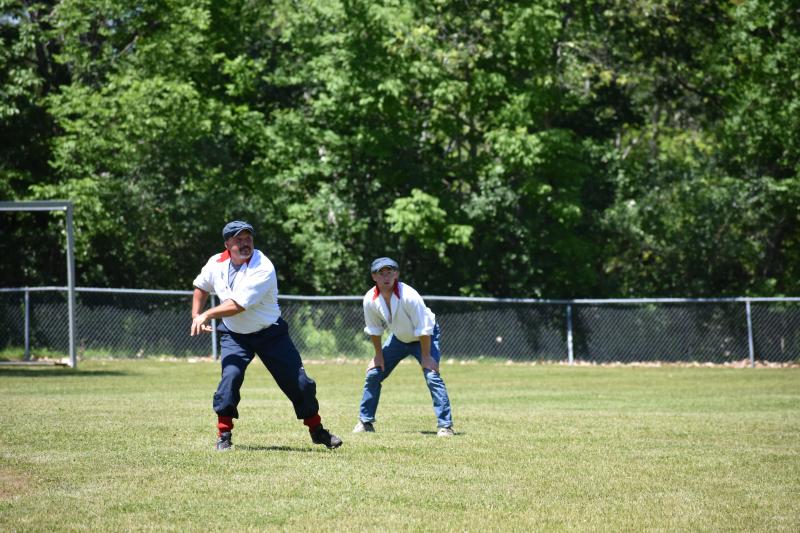 (Photo by Sarah Thompson)
(Photo by Sarah Thompson)
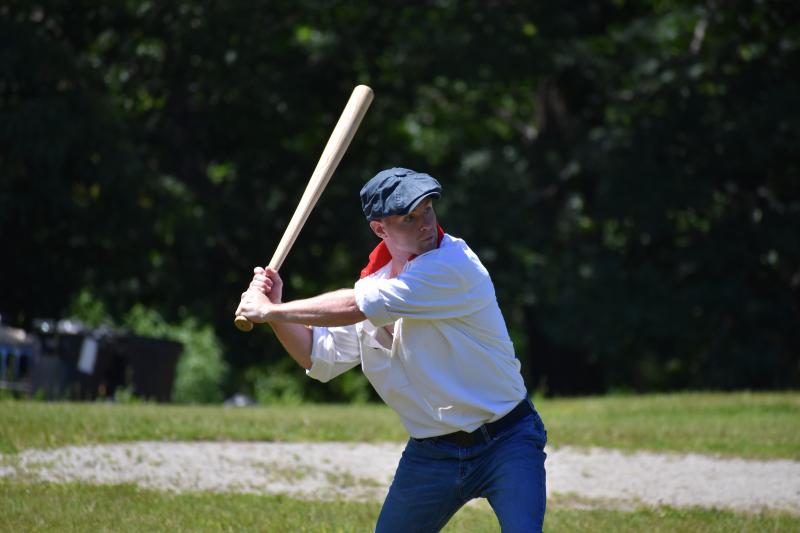 (Photo by Sarah Thompson)
(Photo by Sarah Thompson)
 (Photo by Sarah Thompson)
(Photo by Sarah Thompson)
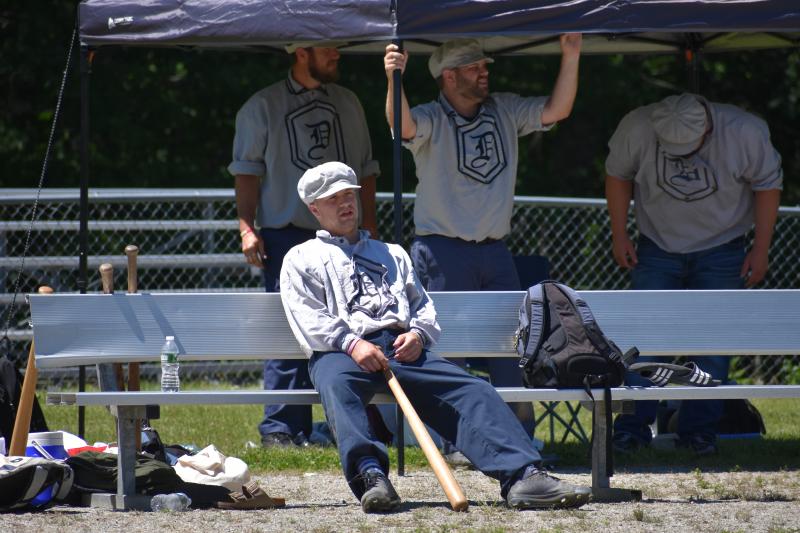 (Photo by Sarah Thompson)
(Photo by Sarah Thompson)
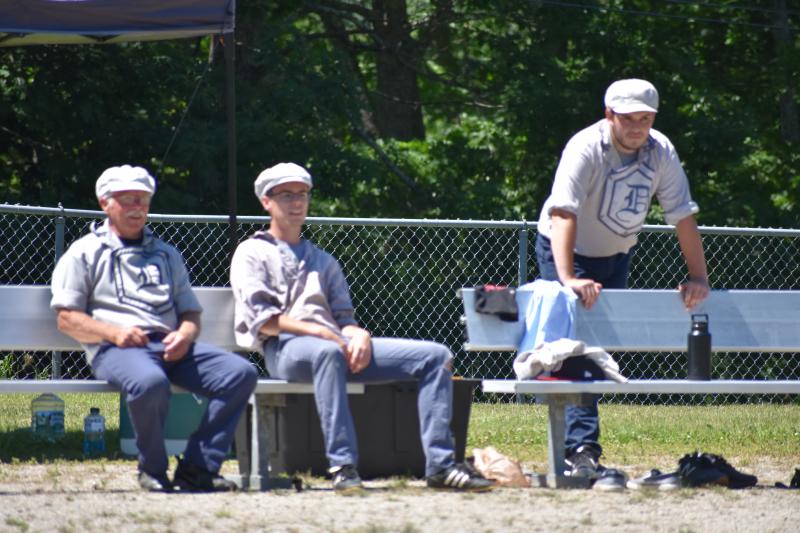 (Photo by Sarah Thompson)
(Photo by Sarah Thompson)
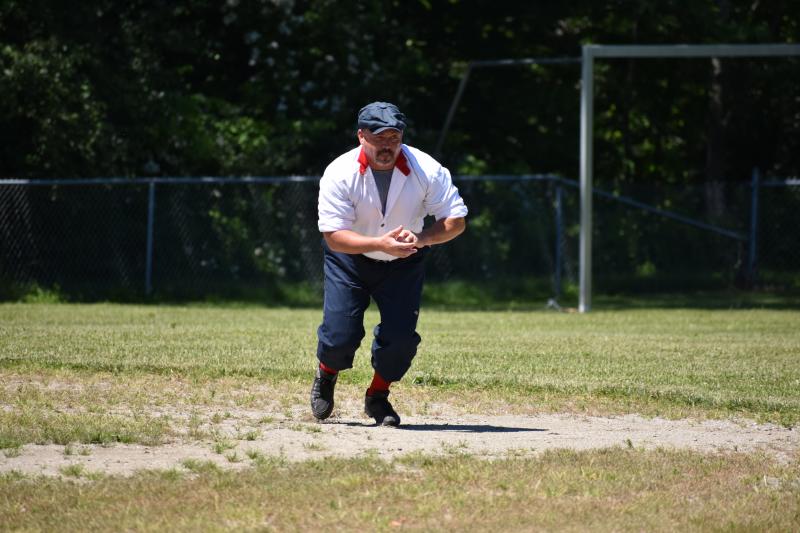 (Photo by Sarah Thompson)
(Photo by Sarah Thompson)
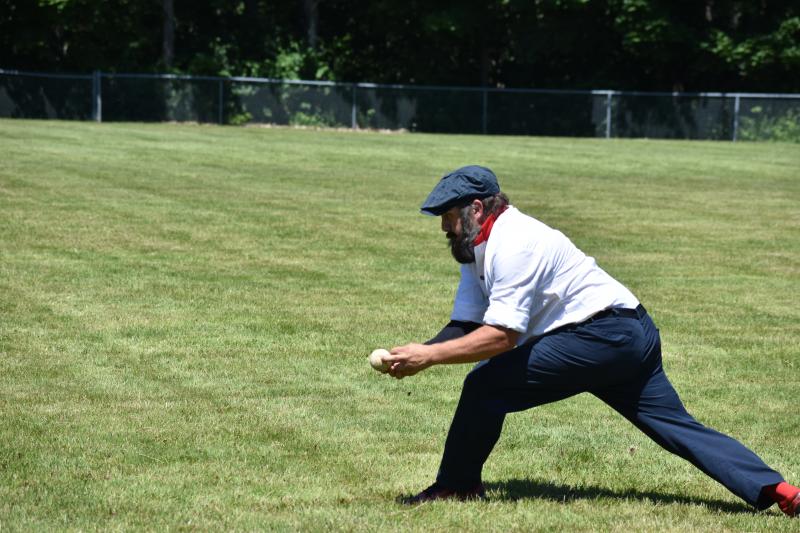 (Photo by Sarah Thompson)
(Photo by Sarah Thompson)
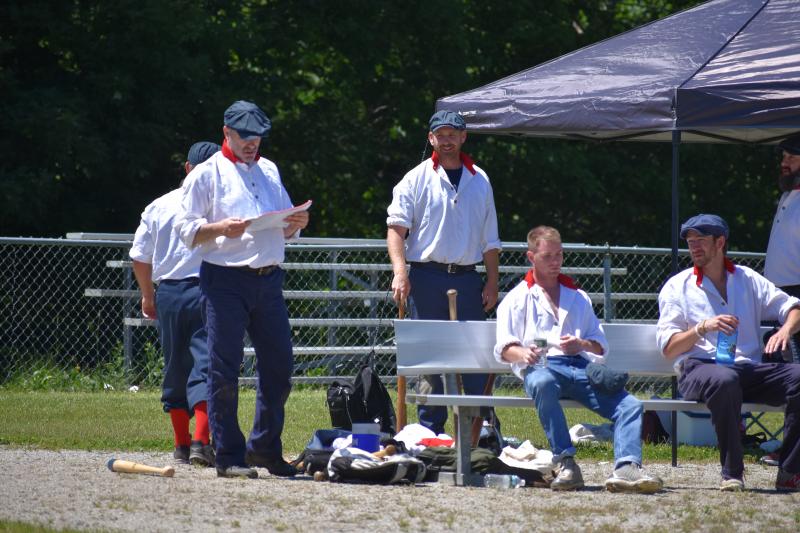 (Photo by Sarah Thompson)
(Photo by Sarah Thompson)
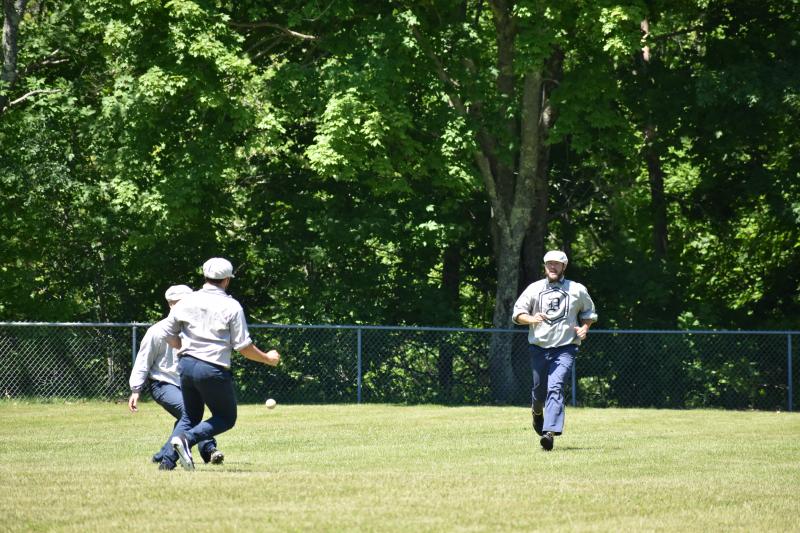 (Photo by Sarah Thompson)
(Photo by Sarah Thompson)
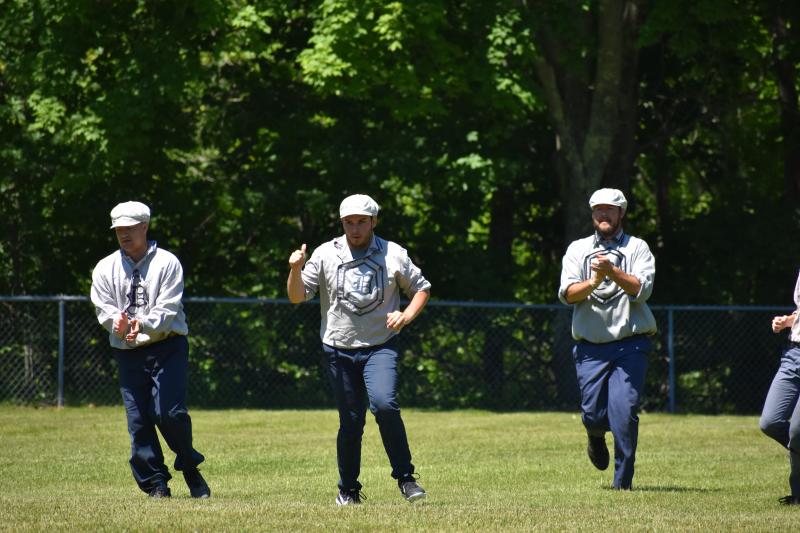 (Photo by Sarah Thompson)
(Photo by Sarah Thompson)
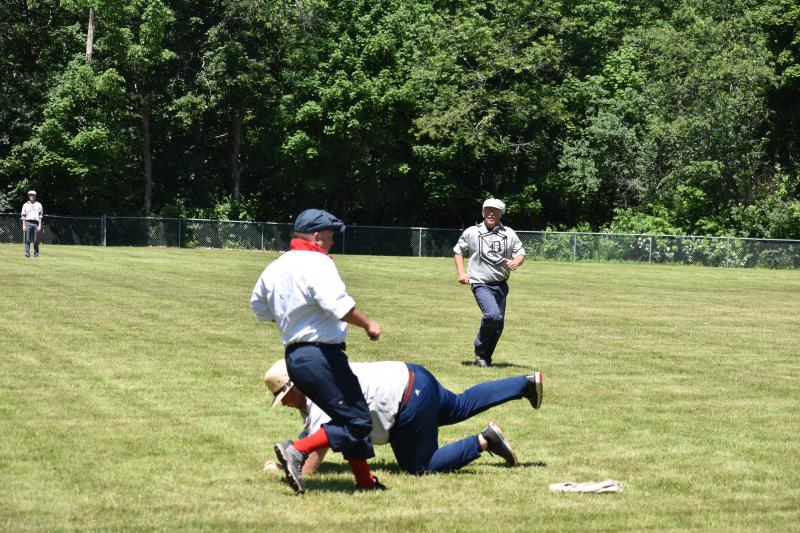 (Photo by Sarah Thompson)
(Photo by Sarah Thompson)
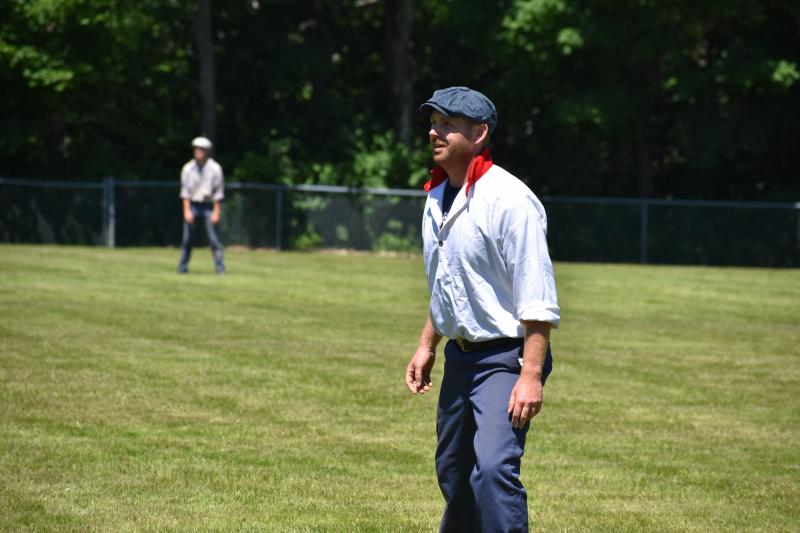 (Photo by Sarah Thompson)
(Photo by Sarah Thompson)
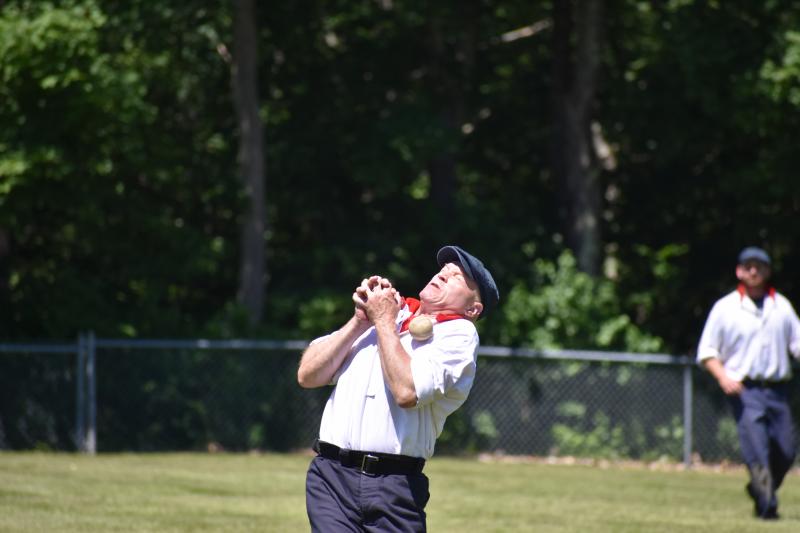 (Photo by Sarah Thompson)
(Photo by Sarah Thompson)
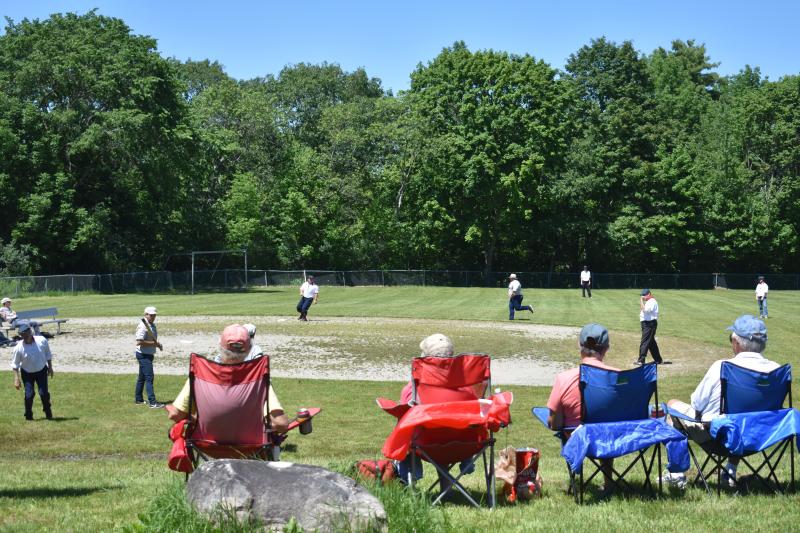 (Photo by Sarah Thompson)
(Photo by Sarah Thompson)
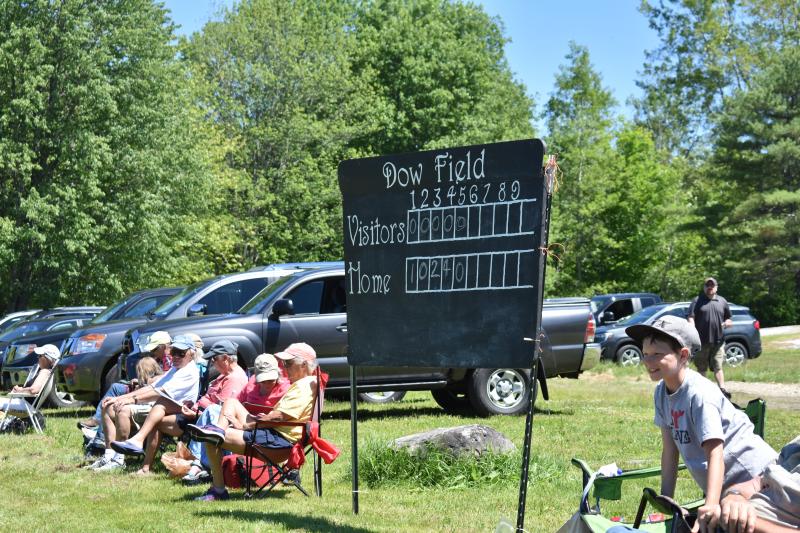 (Photo by Sarah Thompson)
(Photo by Sarah Thompson)
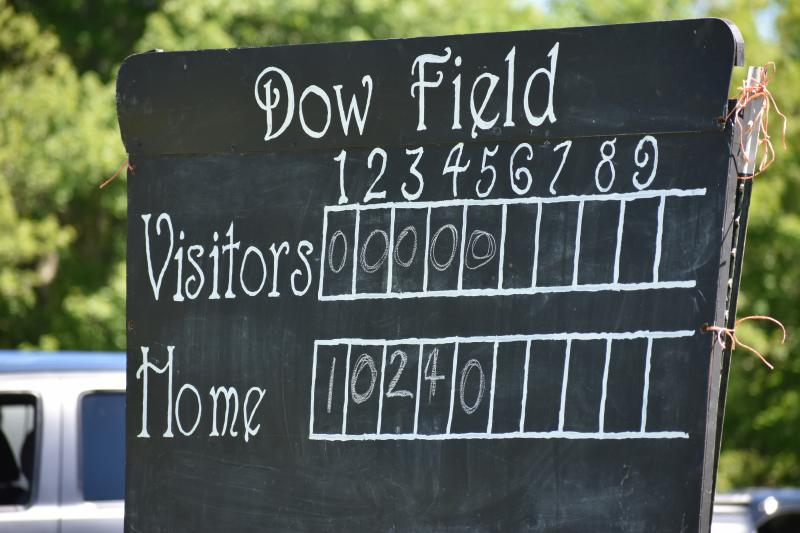 (Photo by Sarah Thompson)
(Photo by Sarah Thompson)
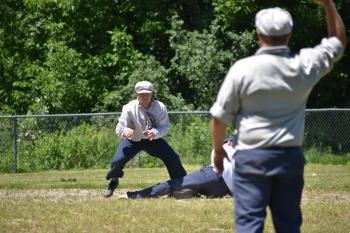 Undeterred by regulation uniform apparel from 1864, members of the Dirigo Vintage Club kept the ball moving as a Sunrise Base Ball Club player slides in. (Photo by Sarah Thompson)
Undeterred by regulation uniform apparel from 1864, members of the Dirigo Vintage Club kept the ball moving as a Sunrise Base Ball Club player slides in. (Photo by Sarah Thompson)
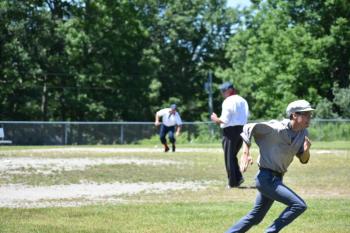 (Photo by Sarah Thompson)
(Photo by Sarah Thompson)
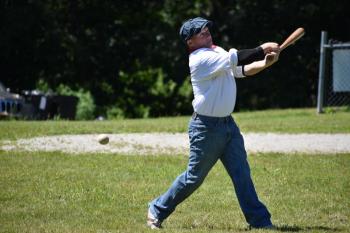 (Photo by Sarah Thompson)
(Photo by Sarah Thompson)
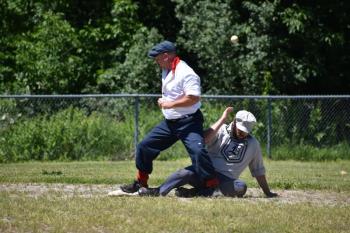 (Photo by Sarah Thompson)
(Photo by Sarah Thompson)
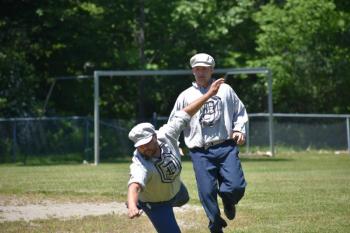 (Photo by Sarah Thompson)
(Photo by Sarah Thompson)
 (Photo by Sarah Thompson)
(Photo by Sarah Thompson)
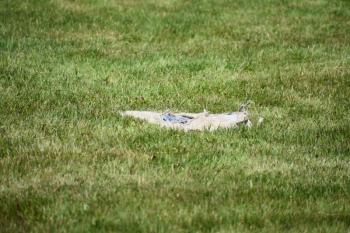 First base. (Photo by Sarah Thompson)
First base. (Photo by Sarah Thompson)
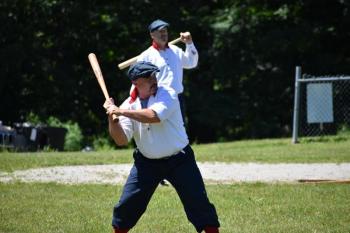 (Photo by Sarah Thompson)
(Photo by Sarah Thompson)
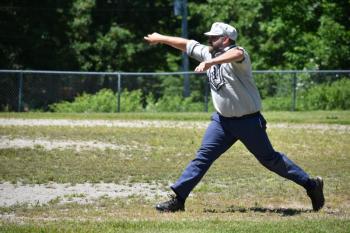 (Photo by Sarah Thompson)
(Photo by Sarah Thompson)
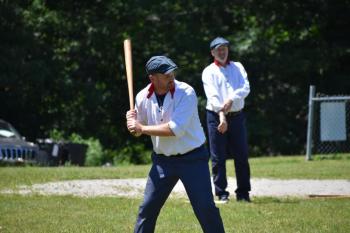 (Photo by Sarah Thompson)
(Photo by Sarah Thompson)
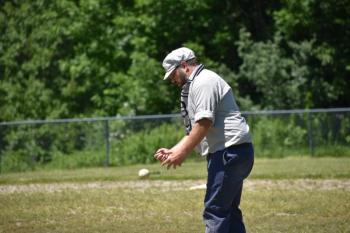 (Photo by Sarah Thompson)
(Photo by Sarah Thompson)
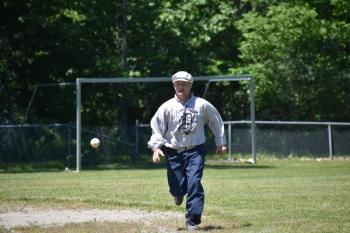 (Photo by Sarah Thompson)
(Photo by Sarah Thompson)
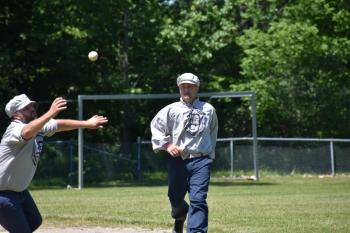 (Photo by Sarah Thompson)
(Photo by Sarah Thompson)
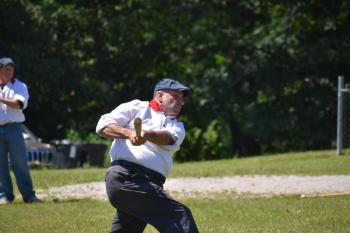 (Photo by Sarah Thompson)
(Photo by Sarah Thompson)
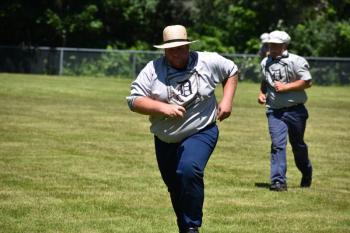 (Photo by Sarah Thompson)
(Photo by Sarah Thompson)
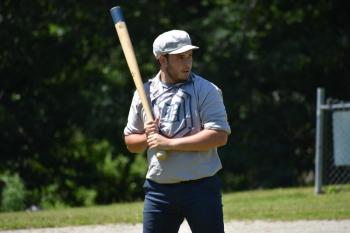 (Photo by Sarah Thompson)
(Photo by Sarah Thompson)
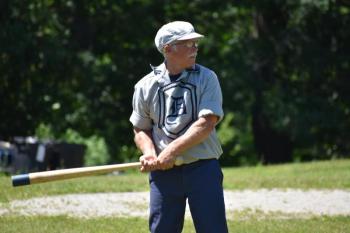 (Photo by Sarah Thompson)
(Photo by Sarah Thompson)
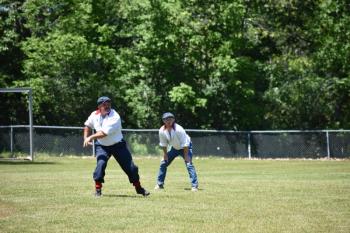 (Photo by Sarah Thompson)
(Photo by Sarah Thompson)
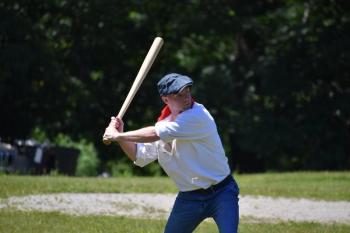 (Photo by Sarah Thompson)
(Photo by Sarah Thompson)
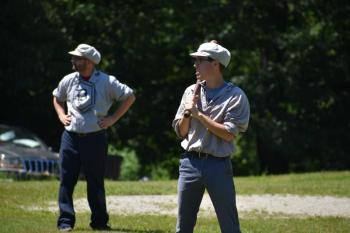 (Photo by Sarah Thompson)
(Photo by Sarah Thompson)
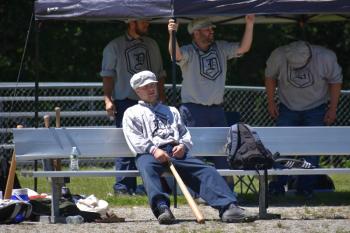 (Photo by Sarah Thompson)
(Photo by Sarah Thompson)
 (Photo by Sarah Thompson)
(Photo by Sarah Thompson)
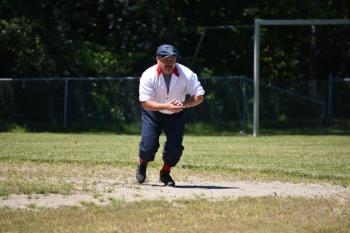 (Photo by Sarah Thompson)
(Photo by Sarah Thompson)
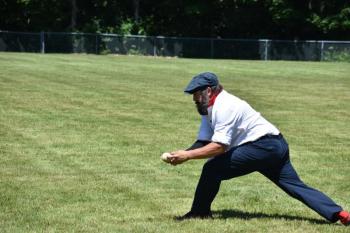 (Photo by Sarah Thompson)
(Photo by Sarah Thompson)
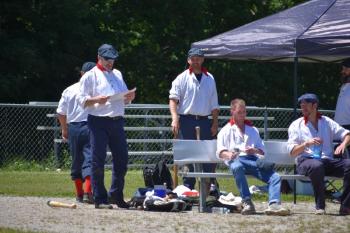 (Photo by Sarah Thompson)
(Photo by Sarah Thompson)
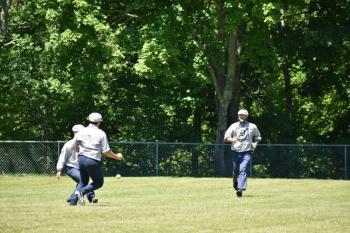 (Photo by Sarah Thompson)
(Photo by Sarah Thompson)
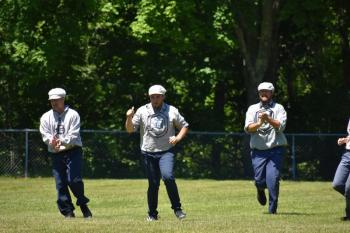 (Photo by Sarah Thompson)
(Photo by Sarah Thompson)
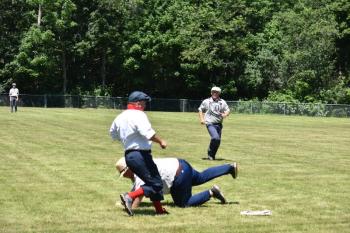 (Photo by Sarah Thompson)
(Photo by Sarah Thompson)
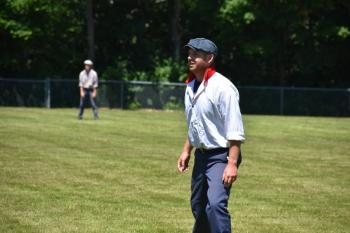 (Photo by Sarah Thompson)
(Photo by Sarah Thompson)
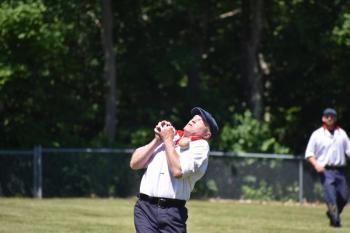 (Photo by Sarah Thompson)
(Photo by Sarah Thompson)
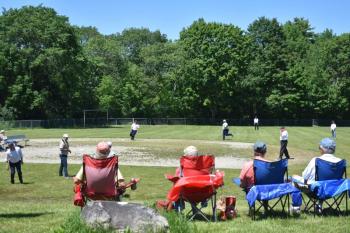 (Photo by Sarah Thompson)
(Photo by Sarah Thompson)
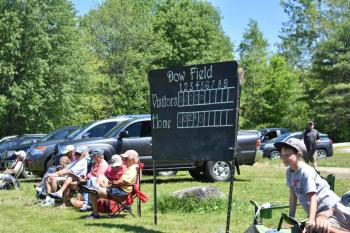 (Photo by Sarah Thompson)
(Photo by Sarah Thompson)
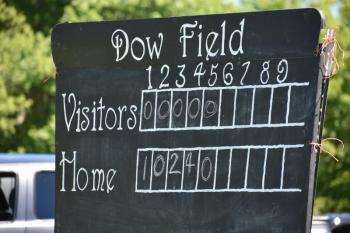 (Photo by Sarah Thompson)
(Photo by Sarah Thompson)
WALDOBORO — The pop fly moonrocketed skywards as the 1864 Dirigo player tossed his era-specific bat to the ground and sprinted toward first base. As he ran, three members of the Sunrise Ball Club rushed to center field, stretching out their hands to the now-descending ‘lemon peel.’
Though the ball had been lobbed upwards by the ‘striker’ over home plate, it fell with enough vigor to ricochet off the grass and into the bare hands of its recipient with a loud thwack.
Because the ball was caught on the first bounce, the umpire called the striker ‘out.’
The ball returned to the pitcher, who retained his stance, eyed the catcher, and underhand volleyed the lemon peel passed home plate. (A lemon peel stitching means that the ball, in theory, could be peeled back in sections like a lemon. Nowadays, stitching goes all the way around. There is no formal name for the lemon peel style. It was simply the base ball of that era.)
Much has changed in the world of baseball since Louis Sockalexis played the game in various Maine towns, including Warren, before joining the Cleveland Spiders, later known as the Cleveland Indians.
Sunday afternoon, July 7, two vintage base ball clubs revisited that era on a ball field behind the former A.D. Gray School, in Waldoboro.
During the annual match sponsored by the Maine Sports Hall of Fame at Dow Furniture, Dirigo players from Augusta competed against the Sunrise Club, of Brunswick, as their namesakes did 159 years ago.
“We’re a group of ballplayers who took an interest in playing 1860s style,” said Jake Newcomb, coordinator of the event.
Newcomb wore a straw hat during the game, which, according to Idealcapco.com, was not uncommon during that era.
Several of the re-enactors – though the game is a true competition – are teachers, according to Dirigo Vintage Club founder Mark Rohman, who nowadays plays only on occasion.
Along with playing the annual Brunswick/Augusta competition in Waldoboro, the players have traveled to Massachusetts, Connecticut, Rhode Island, New York, and Pennsylania.
“It’s all about fun,” he said of the team that has been sliding into bases, (but don’t overrun first base!) usually at Dow Furniture, for 14 seasons. Typically, base ball of the 1860s was played in an open field. This year, because of a rainy June, the Dow Furniture field wasn’t ready, so organizers found “the second oldest field in town,” Rohman said.
The Sunrise Club has it’s own claim to fame. In 1860, Sunrise competed against Bowdoin College. A bat from that game still exists, and is reportedly the second oldest bat in America, according to Rohman.
After the 1860s, base ball didn’t fade from the minds of Midcoast Mainers. Instead, the rules and the equipment evolved, turning base ball, into baseball.
After World War II, the Knox/Lincoln Twilight Baseball League proved evidence of the strong talent coming from the area. At one time, Rockland had two semi-pro baseball teams: the Rockets and the Pirates, according to Wayne Gray, of the Rockland Historical Society.
They played at the City’s ball park, next to a large, covered grandstand, at what is now McDougal Park.
“All of these small towns really had good teams,” said Gray. “Thomaston always fielded a good team. St. George, believe it or not, had a good team.”
Through a project to preserve the voices and first-person point of view, Gray and Gil Merriam interviewed several local baseball players of the Twilight era, 1940s, 50s and 60s.
When Baseball Was King tells the stories of Stan Hannon, Dennis Sawyer, Bud Chisolm, Don Bowman, Harold Sawyer, Al McNielly, and Bob Faustinini.
Reach Sarah Thompson at news@penbaypilot.com
Event Date
Address
United States

